60s girl groups: 10 of the best
Girl groups might have been responsible for the sweetest 60s music, but their lyrics covered everything from teenage pregnancy to frightening dogs, as this playlist shows
1. Martha and the Vandellas - Nowhere to Run
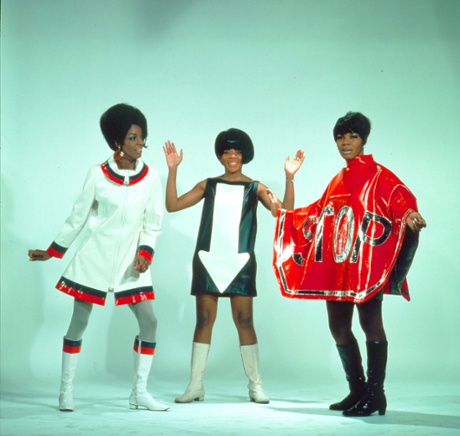
2. The Paris Sisters – All Through the Night
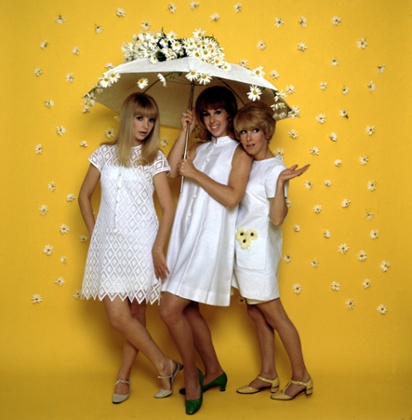
3. The Ronettes – Why Don’t They Let Us Fall in Love?
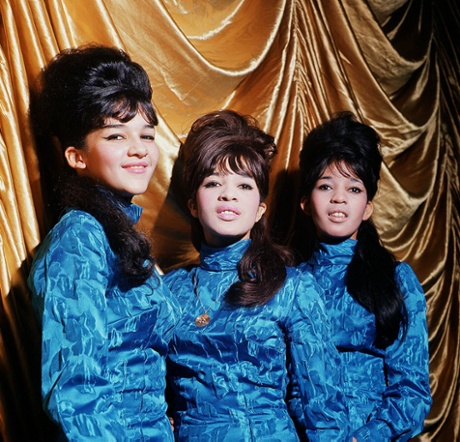
4. The Blossoms – That’s When the Tears Start
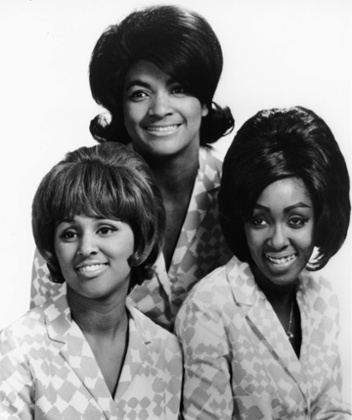
5. The Cookies – Only to Other People
I’ve always had a special place in my heart for the Cookies, whose dorky charm chimed perfectly with their songs’ lyrics of longing and despair. They’re known mostly for Chains – a Goffin/King number that went on to be covered by the Beatles – but some of their other songs had a deeper emotional pull. Only to Other People is a ballad that sets out its gloomy stall with three descending chords before unveiling a tale familiar to any lonely teenager: “I’ve been told that dreams come true, and handsome boys fall in love with you,” goes the opening line, before such youthful fantasies are quashed: “But I’ve only seen it happen in the movies, only in fairytales, only in the books I’ve read … and only to other people.” The feeling that real love is something out of the protagonist’s reach is a theme Morrissey would pick up and run with on songs such as How Soon Is Now?, so it’s no surprise that the Smiths covered the band's equally brilliant I Want a Boy for My Birthday during one of their first rehearsals (although only a teasing 30 seconds of that rough recording exists on the web).6. The Shangri Las – Bull Dog
The Shangri Las weren’t just leaders of the pack, they stood out from it too, adding a dark undercurrent to the typically adolescent girl group themes of kisses and crushes on songs like I Can Never Go Home Anymore. That song’s B-side, Bull Dog, hardly showcases the same level of sophistication – it is, after all, a song about a scary dog who disapproves of a blossoming relationship – but the handclaps, punchy piano chords and cheerleader chorus chants make this a storming dancefloor number for any girl group playlist.7. The Exciters – He’s Got the Power
Talking of darker territory, there are few things darker than domestic abuse, which the genre has always been linked with, from Phil Spector’s treatment of Ronnie Spector to The Crystal’s He Hit Me (and It Felt Like a Kiss). Many songs flirted with the fine line between obsessive love and abuse, and this Queens group – originally a girl group before Brenda Reid’s husband Herb Rooney joined – provide a great example. “He makes me do things I don’t want to do,” begins this song furiously, over drum crashes and a slide down the piano, before concluding: “He’s got the power, the power of love over me.”8. The Supremes – He’s All I Got
Useless, abusive men might find themselves the target of many a girl group track but there are plenty of songs that reserve their venom for other women too. On this B-side – from the most successful girl group of all time – the female under attack doesn’t appear to be a love rival. Instead, she’s someone who's unhappy in love and out to spoil the happiness of others with her trash talk. It makes the song’s attack a tricky balancing act – less a character assassination, more a plea for said girl to retract her idle gossip before it causes lasting damage. The soaring strings, along with propulsive brass and drums, made this a northern soul favourite.9. The Shirelles – Will You Love Me Tomorrow
Girl group songs were often more concerned with love and longing than white-hot lust. On Will You Love Me Tomorrow, however, pre-marital sex controversially took centre stage, although it’s not the thrill of the act that this classic is concerned with, but the cold, emotional fall-out that can arrive the morning after. Written before the swinging 60s had taken hold, Gerry Goffin and Carole King's song managed to be both taboo and prescient (as the decade progressed, the lyrics seemed increasingly to question its liberal mores, something King acknowledged herself when she recorded it for Tapestry as a wiser woman). As an aside, I have fond memories of watching Ryan Jarman from the Cribs “interpret” this song during the band’s early gigs, often while catastrophically drunk, treading on broken bottles and heckling his own crowd. Proof, if proof were needed, that songs this perfect can withstand any treatment.10. Lovelites – How Can I Tell My Mom and Dad
Parents are the unlikely stars of many girl group songs, with the vocalist either hiding things from them, running away from them or simply hoping not to disappoint them. On this record, Chicago’s Lovelites are doing all three, stressing out – although admittedly over a laidback groove – about how to explain to their folks that they’ve got pregnant and the guy responsible has upped and left. The hook here – “somebody pleeeease help me explain” – is especially sublime, while the music itself shows how the girl group sound would adapt to more expansive styles and survive for decades to come.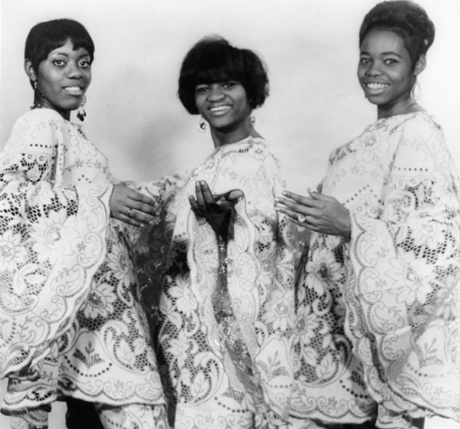
No comments:
Post a Comment